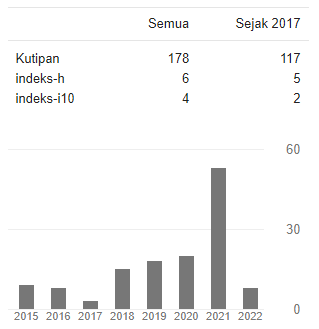Korupsi Dan Kepatuhan Pajak: Peran Kontekstual Edukasi Wajib Pajak (Corruption and Tax Compliance: The Contextual Role of Taxpayer Education)
Abstract
Tax revenues are often not optimal due to several factors, one of which is the perception of corruption. The purpose of this study was to examine the impact of perceptions of corruption on tax compliance and the role of education. This study took 107 sample countries and used secondary data sources from the Corruption Perception Index, Global Competitiveness Report. The result is that the higher the perception of state corruption, the lower the level of state tax compliance. However, taxpayer education can increase tax compliance through the readiness of taxpayers to obey with the perception of fairness of the tax system and the views of tax authorities that are clean from corruption. The results of this study are expected to be useful for governments and state apparatus in various countries in designing and making policies and programs to increase taxpayer education.



_mini-1.jpg)






1.jpg)









